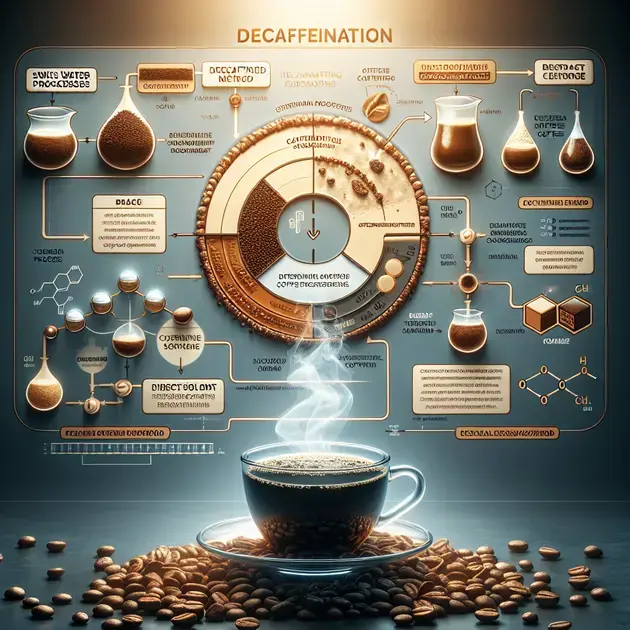Is Decaffeinated Coffee Good for Your Health?
Is your morning routine incomplete without a mug of coffee? It may be your go-to drink, as this beverage can help boost energy and alertness. This is possible due to the caffeine content in this popular drink. However, if you prefer to reduce your caffeine intake without giving up coffee, you can go for its decaffeinated version.
Decaffeinated coffee is a beverage that has undergone a process to remove most of the caffeine content. This allows coffee lovers to enjoy the taste and aroma of coffee without the stimulating effects of caffeine. But is decaffeinated coffee good for your health?
One of the main benefits of decaffeinated coffee is that it may help individuals who are sensitive to caffeine. Some people experience jitters, increased heart rate, or anxiety after consuming regular coffee. Switching to decaf can eliminate these side effects and still provide a satisfying coffee experience.
Decaffeinated coffee also contains antioxidants similar to regular coffee. Antioxidants are known for their role in reducing inflammation and protecting the body against free radicals, which can contribute to chronic diseases like heart disease and cancer. Therefore, drinking decaf coffee may still offer some health benefits in terms of antioxidant intake.
Additionally, decaffeinated coffee can be a good option for those who want to enjoy a hot beverage without the interference of caffeine. It can be consumed in the evening without disrupting sleep or causing nighttime restlessness.
However, it’s important to note that decaffeinated coffee is not completely caffeine-free. A small amount of caffeine is still present, usually ranging from 1-3% of the original caffeine content, depending on the brand and brewing method. This means that if you are extremely sensitive to caffeine or need to completely avoid it for medical reasons, decaf coffee may not be suitable for you.
Furthermore, the process of decaffeination may involve the use of chemicals or organic solvents, such as ethyl acetate or methylene chloride. While these substances are regulated and considered safe in small amounts, some individuals may prefer decaffeinated coffee that has been processed using natural methods like water processing or the Swiss water method.
In conclusion, decaffeinated coffee can be a good alternative for individuals who want to reduce their caffeine intake while still enjoying the taste and experience of coffee. It may be beneficial for those who are sensitive to caffeine or want to avoid its stimulating effects. However, it’s essential to choose decaf options that have been processed using methods that align with your preferences and values. As with any beverage, moderation is key, and it’s always a good idea to consult with a healthcare professional regarding your individual health needs and considerations.
